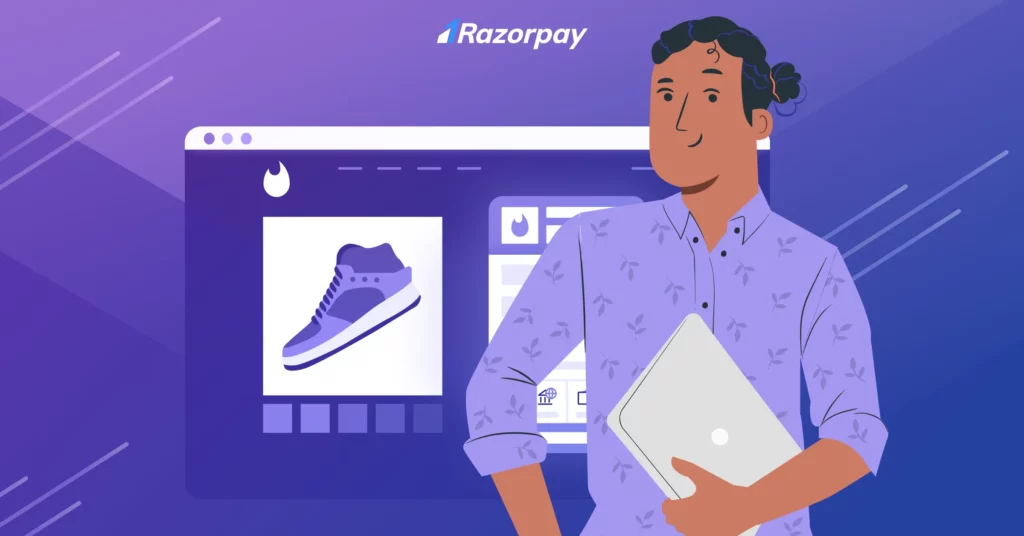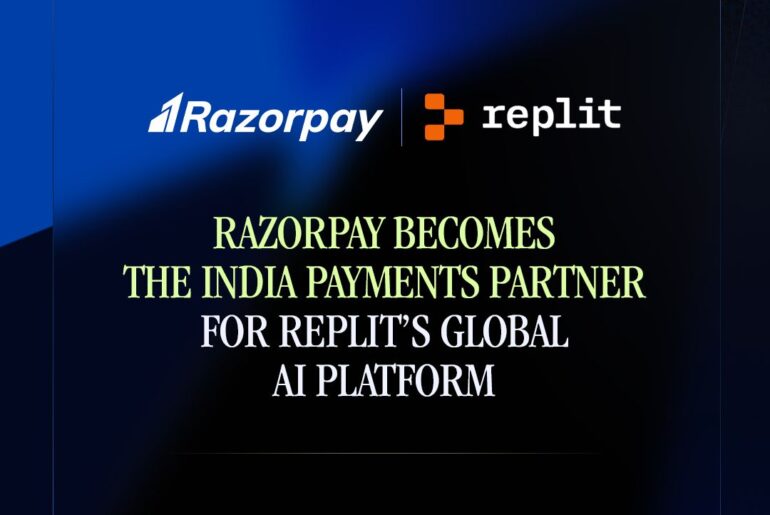A merchant payment gateway is a payment gateway used by businesses to accept online payments securely. It encrypts payment details and routes the transaction for authorisation, then returns an approved/declined response in seconds.
Table of Contents
What is Merchant Payment Meaning?
A merchant payment is when a customer pays a business using a credit card, debit card, or another electronic payment method. These payments are processed through a merchant account, which is a special type of bank account set up to accept electronic payments.
Merchant payments are crucial for businesses as they enable cash-free transactions. This not only saves businesses time and money but also makes it more convenient for customers to pay for products or services.
Key takeaways
- A merchant payment gateway is a digital tool that enables businesses to securely accept and process online payment transactions by acting as a bridge between the customer’s payment method and the merchant’s bank.
- It encrypts and protects sensitive payment details during checkout, ensuring secure transaction authorisation and reducing fraud risk.
- Merchant payment gateways support multiple payment methods such as credit/debit cards, digital wallets, and UPI, helping businesses cater to diverse customer preferences.
- They deliver faster, real-time transaction processing and a smoother user experience, which can translate into higher conversion rates and better customer satisfaction.
- Using a reliable payment gateway is essential for e-commerce success, as it boosts trust in your brand, simplifies setup, and keeps your business up to date with modern payment trends.
Example of a Merchant Payment
A customer visits your website, selects a product, and enters their debit or credit card details at checkout. Once the payment link is clicked, the card information is securely sent to the best payment gateways.
The payment gateway verifies the card details, checks for sufficient funds, and uses anti-fraud measures to ensure the transaction is safe. If all is clear, the payment gateway sends a request to the customer’s issuing bank.
The issuing bank transfers the approved amount to the merchant’s bank, which then deposits the funds into your merchant account. This process completes the payment transaction securely and efficiently.
Different Types of Merchant Payments
1. Retail Payments
These occur in physical stores, where customers pay for goods or services using cash, cards, or mobile payments at the point of sale.
2. E-commerce Payments
These payments take place online, allowing customers to purchase through websites or apps using credit cards, digital wallets, or bank transfers.
3. Recurring Payments
These are automatic payments set up for regular services, such as subscriptions or memberships, where the amount is deducted at specified intervals.
4. Merchant-initiated Transactions
In this case, the merchant initiates the payment process on behalf of the customer, often for services like billing or payment reminders, streamlining the payment experience.
Merchant payments come with various fees, such as:
Transaction fees
Charged by the MSP (Merchant Service Provider) for processing each transaction.
Settlement fees
Set by credit card or debit card networks for settling each transaction.
Recurring fees
Charged by the MSP to maintain the merchant account.
What Is a Merchant Payment Gateway?
A merchant payment gateway is a must-have tool for e-commerce, as it helps businesses securely process and authorize online transactions. It acts as a link between the customer’s bank and the merchant’s website, ensuring payment data is encrypted and protected. When customers enter their payment details on the site, the gateway takes over, validating the data and getting an approval or decline response from the customer’s bank. This tool is crucial for businesses to accept different payment methods, such as credit cards and digital wallets, making the shopping experience smoother for customers and boosting online sales.
Why Is a Merchant Payment Gateway Important?
1. Quick and Secure Transactions
Merchant payment gateways process transactions quickly, ensuring payments are completed in real time. They employ encryption and other security measures like PCI and DSS to protect customer data, build trust, and enhance your business’s reputation for security.
2. Minimal Setup Costs
Setting up a merchant payment gateway is cost-effective, with minimal upfront expenses. While there may be transaction fees, the overall value and return on investment are significant. Affordable options like Razorpay and PayU offer excellent services at competitive rates.
3. Keep Up with the Trends
Merchant payment gateways evolve with new payment methods, like digital wallets and UPI. Staying updated with these trends helps your business stay competitive and meet customer expectations for modern payment options.
4. Enhanced Customer Experience
Offering multiple payment methods increases customer satisfaction and reduces cart abandonment. Customers appreciate the convenience of choosing their preferred payment option, which leads to higher conversion rates.
5. Global Acknowledgment
Merchant payment gateways, including international payment gateways, allow you to accept international payments and support multiple currencies. This capability opens your business to a global market, expanding your customer base and boosting sales.
6. Improved Cash Flow
Payment gateways typically offer fast settlements, improving your cash flow. With settlement times as short as one to two days, businesses benefit from quicker access to funds, helping manage daily operations smoothly. For example, Razorpay’s settlement cycle of T+2 days has helped small businesses better manage cash flow, reducing delays in receiving payments.
7. Fraud Detection
Fraud detection is critical for protecting both your business and your customers. Merchant payment gateways employ tools like encryption, tokenisation, and real-time monitoring to detect and prevent fraudulent activities. These measures safeguard your business and customers, ensuring secure and reliable transactions.
Types of Merchant Payment Gateways
1. Hosted Payment Gateways
Hosted payment gateways redirect your customers to a secure external payment page provided by the gateway. The customer completes the payment on this page and is then redirected to your website.
This gateway type is easy to integrate into your website and offers high-level security as the provider handles sensitive data. It also reduces your responsibility for compliance. Popular examples of hosted gateways include PayPal and Stripe.
2. Self-Hosted Payment Gateways
With self-hosted payment gateways, you host the payment page directly on your website. Your customer enters their payment details on your platform, which are then securely transmitted to the payment processor for verification.
This method gives you more control over the customer experience, as the entire transaction happens on your site. However, you are responsible for implementing robust security measures like encryption and PCI compliance. Examples of self-hosted gateways include WooCommerce and Magento, which provide flexibility for online stores.
3. API-Based Payment Gateways
API-based payment gateways offer high customisation by allowing developers to integrate the gateway directly into your website or app through APIs. Developers use the API to connect the payment gateway with your platform, enabling seamless data transfer between your site and the gateway without redirecting customers.
This allows for full control over the payment experience and a smoother transaction flow. While it requires technical expertise for setup, it provides a highly customised, streamlined user experience. Popular examples of API Based payment gateways include Razorpay and Braintree.
Related Read: Difference Between Payment Gateway & Payment Processor
Benefits of Merchant Payment Gateways
1. Enhanced Security
Merchant payment gateways use advanced security protocols such as SSL encryption and tokenisation to safeguard sensitive customer data during transactions. These measures protect against data breaches and fraud, ensuring secure payments. Building this level of security enhances customer trust, which is crucial for business reputation and long-term success.
2. Convenience for Customers
Payment gateways support various payment methods such as credit cards, UPI, digital wallets, and net banking. These user-friendly interfaces simplify the payment process for customers, making their shopping experience more seamless and convenient, which encourages repeat purchases.
3. Reduced Cart Abandonment
Offering multiple payment options through a gateway helps reduce cart abandonment rates. Customers are more likely to complete their purchases when they have access to their preferred payment methods. For example, a recent survey shows that 77% of younger consumers are more likely to trust businesses that offer their preferred payment methods.
4. Quick Settlements
Most payment gateways offer fast settlement times, typically between 1–2 days. Quick settlements improve your cash flow by giving you faster access to your funds. Gateways like Razorpay and PayU are known for their efficient settlement processes, which help businesses manage their finances better.
5. Detailed Reporting
Payment gateways provide detailed reports and analytics, helping you track transactions, trends, and customer behaviour. These insights allow for better data-driven decision-making, enabling you to optimise sales strategies and improve overall business performance.
6. Subscription Management
For businesses offering subscription services, payment gateways simplify recurring payment management. Features like automatic billing reduces administrative tasks, ensuring timely payments. This especially benefits subscription-based businesses, like those offering SaaS products or digital services.
7. Scalability
Payment gateways can scale with your business as it grows. They can handle increasing transaction volumes without compromising performance, making them essential for businesses looking to expand. This scalability ensures you can effectively manage larger customer bases and higher transaction loads.
The Role of Merchant Payment Gateways
1. Efficient Payment Processing
Payment gateways automate and streamline the entire payment process, reducing the risk of errors and the need for manual handling. Swift and accurate transaction processing enhances business efficiency and customer experience.
2. Diverse Payment Options
Payment gateways support various payment methods, such as credit cards, UPI, and digital wallets. Catering to customer preferences with these options can boost sales and enhance the overall customer experience.
3. Compliance and Regulation
Payment gateways comply with industry standards such as PCI-DSS, reducing legal and financial risks. Adhering to these regulations ensures that your business remains protected while maintaining high security for transactions.
4. Competitive Edge
Adopting a modern payment gateway demonstrates your commitment to innovation and customer convenience. Staying updated with the latest payment technologies will streamline the purchasing process and enhance customer satisfaction. This proactive approach sets your business apart from competitors, positioning you as a leader in customer service and modern payment solutions.
Related Read: What are the 4 Different Types of Payment Gateway?
Conclusion
Merchant payment gateways provide enhanced security, global reach, and customer convenience. They help reduce cart abandonment, improve cash flow, and support business growth with detailed reporting and scalable solutions. By leveraging these benefits, your business can stay competitive and thrive in the digital economy.
Frequently Asked Questions
1. Why do businesses need a merchant payment gateway?
You need a merchant payment gateway to securely process online payments from your customers. It acts as a digital bridge between your business and customers’ banks, ensuring safe transactions while reducing fraud risks.
2. What types of payment methods can be processed through a merchant payment gateway?
Your business can accept multiple payment methods through a payment gateway, including: – Credit and debit cards – UPI payments – Net banking – Mobile wallets like PhonePe and Paytm – EMI options – International cards – Buy Now Pay Later (BNPL)
3. Can merchant payment gateways integrate with e-commerce platforms?
Yes, you can easily integrate payment gateways with major e-commerce platforms like Shopify, WooCommerce, and Magento. Most gateways offer ready-to-use plugins and APIs that your tech team can implement quickly.
4. How do I choose the right merchant payment gateway for my business?
To choose the right merchant payment gateway services, consider these key factors:
- Payment gateway charges and transaction fees.
- Settlement time for receiving payments
- The success rate of transactions
- Available payment methods
- Quality of technical support
- Security features and compliance
- Ease of integration with your platform

